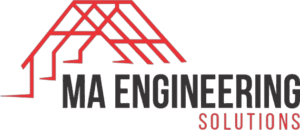MA Engineering Solution best Sandwich Panels Manufacturer in Lahore & also a leading company of Sandwich Panel PEB-Shed Manufacturers. Insulated sandwich panels are innovative construction materials that have gained widespread popularity in various industries due to their exceptional thermal and structural properties. These panels consist of three layers – two outer layers commonly made of metal, and an inner core made of insulating material. The combination of these layers creates a sandwich-like structure that delivers superior performance in terms of insulation, strength, and versatility.
best Sandwich Panels Manufacturer in Lahore
The outer layers of insulated sandwich panels are typically made of materials such as steel, aluminum, or other metals known for their durability and resistance to weather conditions. These robust outer layers provide structural integrity and protection against external elements, making the panels suitable for a wide range of applications, from industrial facilities and warehouses to commercial buildings and residential structures.
The key component of insulated sandwich panels is the insulating core, which is responsible for their excellent thermal performance. Common materials used for the core include expanded polystyrene (EPS), polyurethane (PUR), polyisocyanurate (PIR), and mineral wool. Each material has its own set of advantages, such as high thermal resistance, fire resistance, and environmental sustainability. The choice of core material depends on the specific requirements of the project and the desired performance characteristics.
One of the primary advantages of insulated sandwich panels is their exceptional thermal insulation properties. The insulating core effectively minimizes heat transfer, creating a barrier that helps maintain a comfortable interior temperature. This feature is particularly crucial for energy-efficient construction, as it reduces the need for excessive heating or cooling, leading to significant energy savings and lower utility costs over time. As a result, insulated sandwich panels contribute to environmentally friendly and sustainable building practices.
The versatility of insulated sandwich panels extends beyond their thermal properties. These panels are lightweight, making them easy to handle and install. The streamlined construction process can accelerate project timelines and reduce labor costs. Moreover, the panels offer design flexibility, allowing architects and builders to create aesthetically pleasing structures with various finishes and colors. This adaptability makes insulated sandwich panels suitable for a wide range of architectural styles and design preferences.
In addition to their insulation and structural benefits, insulated sandwich panels also provide acoustic insulation, reducing sound transmission between spaces. This makes them an ideal choice for applications where noise control is essential, such as in commercial buildings, educational institutions, and healthcare facilities.
Industries such as cold storage, food processing, and pharmaceuticals benefit significantly from the use of insulated sandwich panels. These panels create controlled environments with precise temperature and humidity levels, ensuring the quality and safety of stored goods or production processes. The panels‘ resistance to moisture and corrosion further enhances their suitability for such demanding applications.
Sandwich panels come in various types and categories, each tailored to meet specific requirements and applications in the construction and industrial sectors. The classification is typically based on the type of facing materials, the composition of the core, and the intended purpose of the panel. Here are some common categories of sandwich panels:
- Metal-faced Sandwich Panels:
- Steel-faced Panels: These panels have outer layers made of steel, providing durability and resistance to external elements. They are commonly used in industrial and commercial buildings for their strength and longevity.
- Aluminum-faced Panels: Similar to steel-faced panels, but with aluminum outer layers. These panels are lightweight and corrosion-resistant, making them suitable for applications where weight is a critical factor.
- Insulation Core Material:
- Polyurethane (PUR) Panels: These panels have a core made of polyurethane foam, offering excellent thermal insulation properties. They are commonly used in construction projects where energy efficiency is a priority.
- Polyisocyanurate (PIR) Panels: Similar to PUR panels, PIR panels provide high thermal insulation but with enhanced fire resistance. They are suitable for applications where fire safety is a critical concern.
- Expanded Polystyrene (EPS) Panels: Panels with a core made of expanded polystyrene foam. While providing good insulation, EPS panels are known for their lightweight nature, making them easy to handle and install.
- Application-Specific Panels:
- Cold Storage Panels: These panels are designed for applications where maintaining low temperatures is crucial, such as in cold storage warehouses and refrigerated transport.
- Architectural Panels: Specifically designed for aesthetic purposes, these panels offer a variety of finishes, colors, and profiles. They are commonly used in commercial and residential buildings where appearance is a key consideration.
- Fire-Resistant Panels:
- Mineral Wool Panels: These panels have a core made of mineral wool, providing excellent fire resistance. They are commonly used in applications where fire safety is a primary concern, such as in industrial facilities.
- Roof and Wall Panels:
- Roof Panels: Designed for use in roofing applications, these panels often have a profiled surface to facilitate water drainage and are engineered to withstand weather conditions.
- Wall Panels: Specially designed for vertical applications, these panels contribute to the building’s overall thermal and structural performance while providing a visually appealing finish.
- Composite Panels:
- Fiberglass Reinforced Panels (FRP): These panels have a core material reinforced with fiberglass, providing enhanced strength and impact resistance. They are commonly used in applications requiring a high level of durability.
